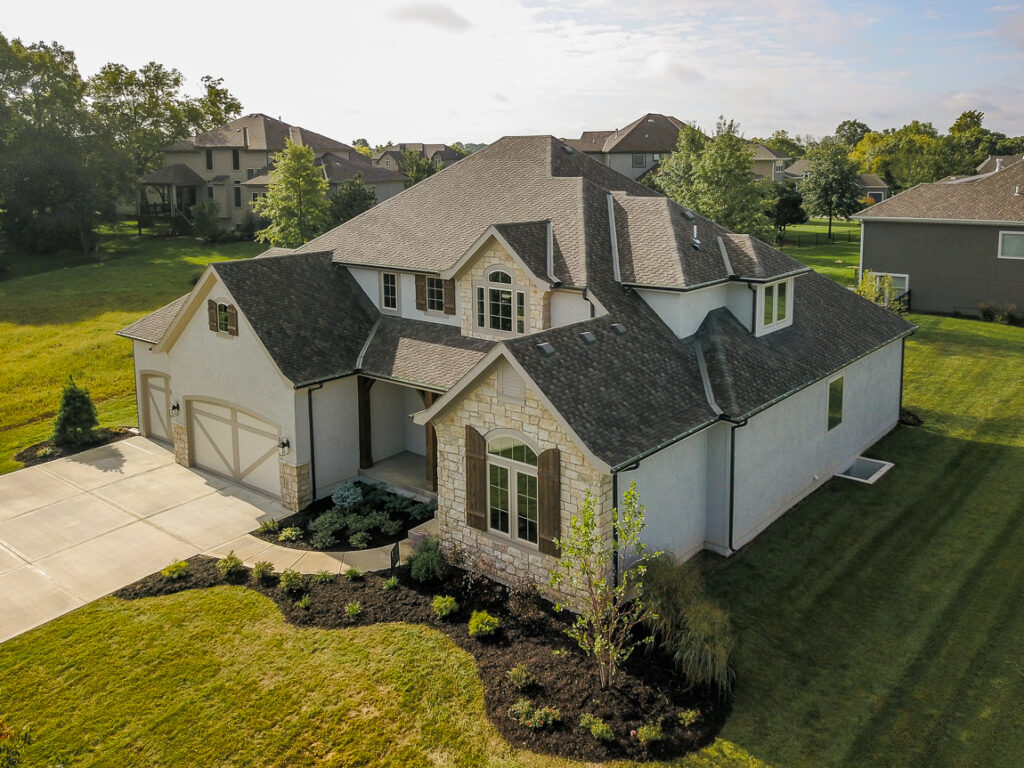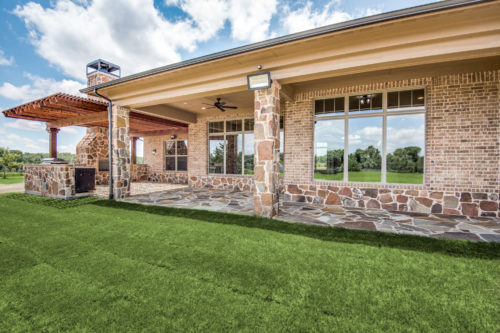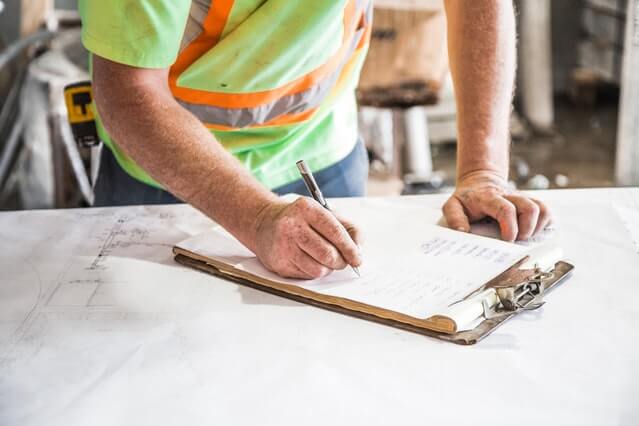How To Find the Right Home Builder for Your New Home
In order to build your dream home, you’ll need a custom homebuilder that can help you bring your vision to life. Building a custom home is unlike any other experience. You get to make your dream home a reality, with the location, layout, and features you’ve always wanted in a house.
Extensive experience.
A long and successful history of crafting homes in your area is one of the most important qualities to look for in a custom homebuilder. Many builders come and go, but one of the telltale signs of a quality custom home builder is standing the test of time.
Happy customers.
Another perk of choosing a builder with a lot of experience is that you get to hear what existing customers think. Look for other homeowners who have shared their experience with the builder, like the ones here. This will help you get a sense of how smoothly the building process goes, as well as how the company treats its customers.
A strong presence in the area.
One of the benefits of building a custom home is the opportunity to choose your perfect location, whether that’s in a quite Overland Park suburb or tucked in the middle of 10 remote acres in Olathe. You can make the homebuilding process easier on yourself by selecting a builder that has several design locations in your area. You’ll likely be stopping by the design center several times during the build, and choosing a well-established builder ensures that you never have to travel far for support.
Assistance with home design, site evaluation, property development, and more.
Investing in a custom home can feel a bit scary at first. After all, you want everything to go just right, and there are a lot of steps to the process. It’s no wonder buyers are drawn to those builders that help them through the process, including home design and floor-plan customization, financing, site evaluation, and property development—and without countless upcharges

Things To Think About When Building A New Home
Know Your Budget And Stick To It
Before you start building your new home, get pre-approved for a budget and stick to it. Most house plans offer a cost to build tool (usually for a nominal fee) to give you an accurate estimate of construction costs based on where you’re building. The numbers include the costs of construction, tax benefits, funds for the down payment and slush account, and other related calculations
Fully Vet Your Builder
There are many builders are out there, but not all are created equal. Do a little research to find out which builders have the best reputation. Whether you search for information online or get recommendations from your family and friends, find out whether a builder is respected for doing quality work as well as being punctual.
Build With Resale In Mind
No matter how much you love the house that you are building, it’s unlikely that it will be the last home you will ever own. Knowing that, you should be mindful of its potential resale value. While you should personalize your home to your liking, don’t add so many upgrades that you overprice your home for the neighborhood. Stick with timeless designs that will age gracefully with your home. Remember that you can add personal touches with your decorations and paint colors.
Think Green
Building green is the future and you should make sure to maximize then when building your new home. Make sure you do your research to maximize energy-efficiency in the design of your new home. Your architect and builder can help ensure that your windows are South-facing so you get as much sunshine as possible heating your home and brightening it up. You’ll want to makes sure that bathrooms, laundries and garages are on the south side of your home and have small windows to minimize heat loss.
Don’t forget the punch
Part of the final phase of building a new home is to do a pre-walk through with your builder. Make a list at the end of construction that shows what needs to still be done or what needs to be repaired on the new construction. You and your contractor will create this list the week before closing when you go through your final walk through. You should be taking notes every time you visit your construction site or do a walk through.
Questions To Ask Your Home Builder
Building a new home can be an overwhelming experience if you don’t choose the right home builder for your needs. You should thoroughly vet your potential builder before signing any paperwork and avoiding any potential headaches. Here are some important questions to ask before you jump in.
How many homes have you built and how long have you been building for?
Be sure to look up the houses that have been built and read as many reviews as you can…remember, quality is just as important as experience. If the builder has any current homes for sale, it would be worth your time to take a tour. Some builders have model homes that you can tour also.
Are they licensed and insured? What type of warranty do they offer?
Being properly insured is a huge must. Accidents happen, which is why insurance is so important. If an accidents occurs on the job site, or any damage is caused to your home while it’s being built, be sure the cost of the damage is covered by the builder. Also be sure to ask about a warranty: Find out how long the warranty is good for and what it covers. You don’t want to move into your brand new home only to discover an issue and have to pay out of pocket for it.
What types of homes do they build?
Some builders only build the plans they have designed. Others will build custom homes based on your unique wants and needs. Be sure to ask about standard features included and find out about any upgrade options. If you have your heart set on something that they cannot provide, do not be afraid to search for other options.
Who will be the foreman on the job site?
The foreman is the person in charge of overseeing the project on a day-to-day basis. They will be there for every step of the construction to ensure it is done right. Whoever your point of contact is, it will be important that there is an open line of communication. Building your home is a huge commitment and you should feel as comfortable as possible.

Are New Construction Homes A Good Investment?
You may ask if new construction homes are a good investment. Building a new home can be overwhelming. Let us make your journey simple by being your new home source. We know all about new construction
In this new home construction blog post we will pose questions you may not think to ask as you begin searching for a new home builder. We will answer questions quickly and simply to get you ready for this exciting time.
New Home Construction Questions
Are new construction prices negotiable?
How long does it take to build a new home?
What is the new home building process?
What makes a home energy efficient?
Can a new home help my allergies?
What is a smart home?
What is better: a new construction home or an existing home?
How do I compare builders?
Should I buy or rent a home
What upgrades are worth it?
Are there new construction homes near me?
New Home Construction Pricing
Are new construction prices negotiable? To help you understand how new home construction is priced, we have created a Pricing Guide document that outlines five pricing variables that are taken into consideration including:
Material Costs
Labor Costs
Administrative Costs
Homesite Costs
Reasonable Builder Profit
New Home Building Process
How long does it take to build a new home and what is the process? Building a new home is exciting, you can choose exactly the layout and features that will meet your family’s needs. When you build a new construction home from scratch, there is some time involved. Typically the entire building process takes 8-9 months after contract. The overall time of a build usually depends on the weather conditions. Construction can easily be delayed by shifts in temperature or too much precipitation. Concrete cure time and framing both need to be completed in ideal conditions.
Categories for New Home Building Education
How to Save Money on a New Construction Home
Building your new home is one of the biggest – if not the biggest – investments you’ll ever make, and when you have the ability to build a home with every option customized for you, things can add up. There are a lot of pros of building new construction. Two major benefits of building your home are control over costs and never having to worry about a pre-owned home
You’ve decided that you want to build your dream home. You need to know how to budget but you don’t know what costs go into building a new home. Within this post and our Pricing Guide, we will answer the following; what costs go into the price of a new construction home, how to save money on a new construction home, and how to build a new home on a budget.
What costs go into the price of a new construction home?
To help you understand how new home construction is priced, we have created a Pricing Guide to deep dive into the five pricing variables that are taken into consideration when a builder sets the sales price of new construction homes. We can’t approach new home construction pricing based on how resale homes are priced
For instance, Resale Home list prices are established based on comparable home sales, and new construction home sales prices are based on the following five pricing variables.
Material Cost
Labor Costs
Administrative Costs
Homesite Costs
Reasonable Builder Profit
How to Save money on a new construction home
If you are learning about how new homes are priced you may run across the term “Price Per Square Foot.” This is a calculation of the value of each square foot of area of a house. Similar new construction homes are based on this calculation. Base price of new construction homes divided by the square footage is how you calculate price per square foot. This calculation should not include the homesite.


